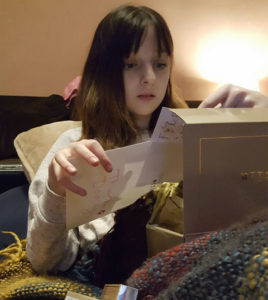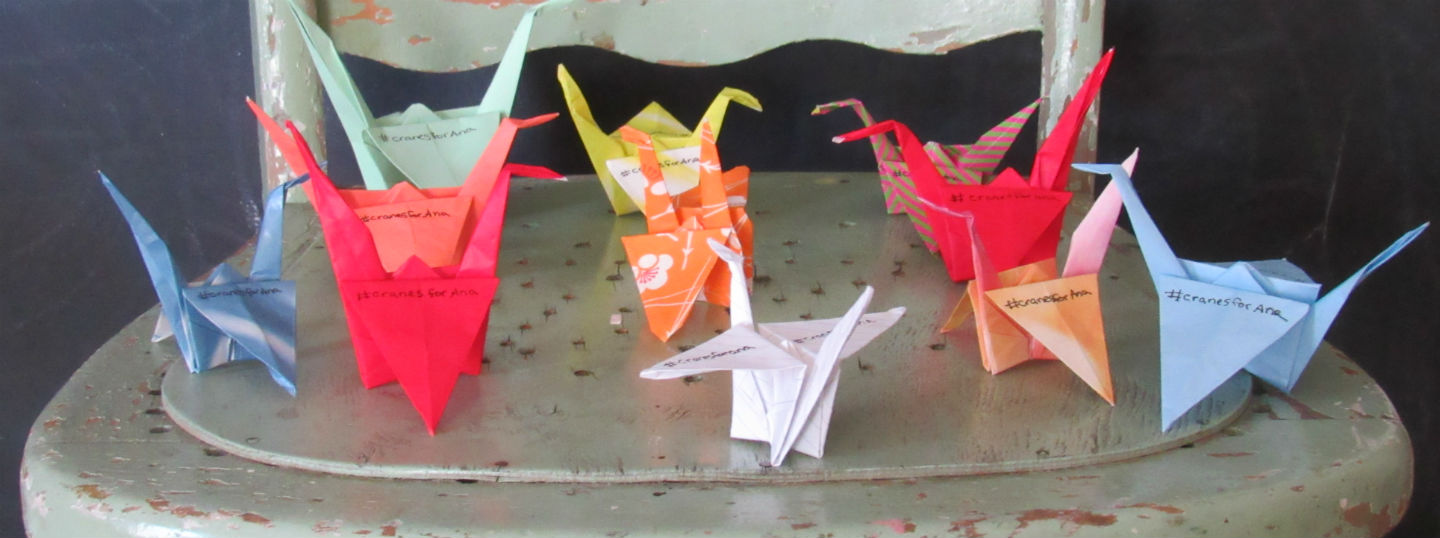She’s not coming back.
At first, I counted her death in days, then weeks, then months—soon it will be years.
I marked each turn of the moon with small changes, tears, and disbelief that another month had passed. I observed the entire year as a spectator—her 16th birthday, the summer solstice, the day she would’ve started tenth grade, the autumn equinox, Halloween, Thanksgiving, Christmas and each day in between. The globe turned and I counted the sunsets, waiting for her.
Sometimes I have to think about her last breath, remember the pallor on her face in the hours before she died, force myself back to the moment I stood beside her body in the funeral home and touched her forehead, her hands. They were cold as stone. It’s the only way I know that it’s real, that it happened at all.
She’s not coming back.
My grief is not a feeling or a thing. It’s not a weight that will lesson over time or a wound that will heal. My grief is a place, an altered dimension. I entered it the moment she died (her breathing shallow, her hands cool, her feet swollen, her eyes—closed for most of the day—flickered open one last time to find mine, and her soul fled from her failing body with one final exhale).
I couldn’t follow her, but I wanted to. Instead, I entered the place where I still linger, where the blue sky hurts my eyes, but the grey sky hurts even more, settling into my bones, exhausting me. I get tired of the day too soon. All I want to do is sleep. I usually lay down for an hour or so, sometimes less, sometimes more. Then I force myself to get up and move through the rest of the day, waiting for it to be over, waiting for the moment when I draw a heart on her wall and whisper her name, waiting to close my eyes again and wondering (hoping) if this will be the night my heart stops beating.
In January, I found a dead sparrow beneath the tray feeder in the yard, its tiny body perfectly still, a few sunflower husks stuck to its head and beak. I wept as I wrapped it in paper towel, not for the life it had lost, but for its luck—to die suddenly in the night among an abundance of seed. Where did it go? Can it reach her?
She’s not coming back.
A year is nothing to Ana now, but when she was alive, each year marked incredible, almost unfathomable, transformation. She was a child, then an adolescent, then a teenager just old enough to look back on her life wistfully (we had her cremated in a faded sun dress she’d loved, her favorite stuffed animals tucked under each arm—the last vestiges of a childhood that she hadn’t quite relinquished.) A year is nothing to me either. That’s another casualty of wandering the grief-place—I can’t pretend I understand time anymore.
Grief ripped the filter from my perspective, showing me the futility of my obsession with time; calendars, clocks, dates, days…all useless. Even so, I can’t stop counting. I’m still waiting. I can sit outside and watch the birds for an entire day. Once, this would’ve felt like wasting time. Now it’s the only thing that feels worthwhile. There are no days anymore—just another blue sky, another sunset, another 12 hours closer to her.
She’s not coming back.
There must be meaning in the rest of my life or else why am I still here? This new perspective feels like a revelation. That I ever wanted to live forever, to grow old, to hold onto life as long as possible—seems absurd.
Last week I read an article about a 75-year-old man, accomplished in his career, whose cancer was missed by radiologists. Six years later, he was finally diagnosed, but by then it had spread. He was terminal. I’d stared at his wrinkled face in the photograph, his bright eyes, his thin frame and wondered if the error had given him six years of relative health, if avoiding the brutality of treatment had actually afforded him more time. I wondered if he understood how lucky he was, to have lived to the age of 75, and to now be on the road to death. I envied him the way I envied the sparrow. Does that make me a monster?
She’s not coming back.
I think I’m going to stay in the grief-place forever, but I want it to have a better name. For the dead, there is no undying. For me, grieving the loss of Ana, there is no ungrieving. It’s been nearly a year, but it feels like a day.
It’s been nearly a year, but it feels like a lifetime.
I loved her more than myself. I can’t reach her, which means I can’t reach the part of me that followed her into death. My love for her, cut off from the living world, is an ache in the center of my chest. I can only count down the months as another year without her begins and hope that some day, in a place where that dead sparrow still flies, I’ll see her again.
She’s not coming back.

